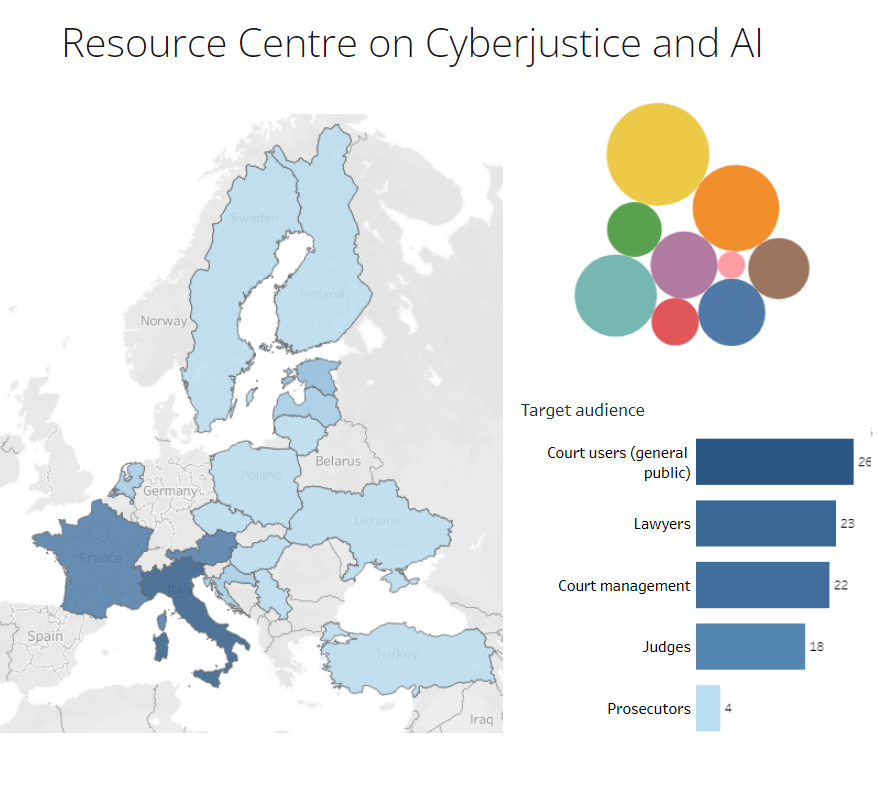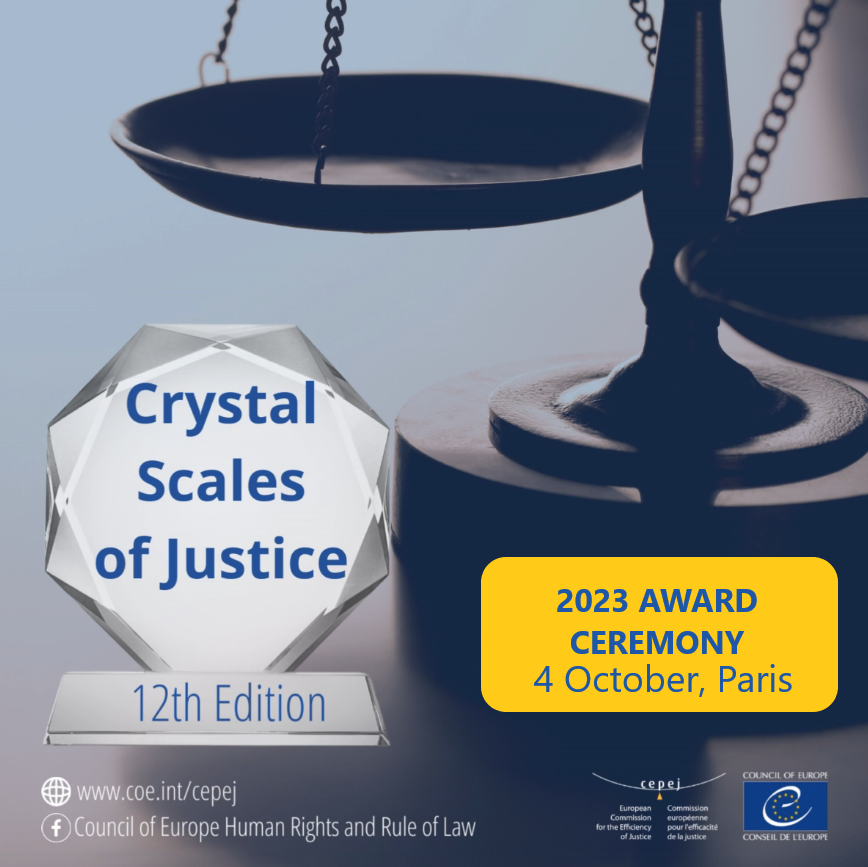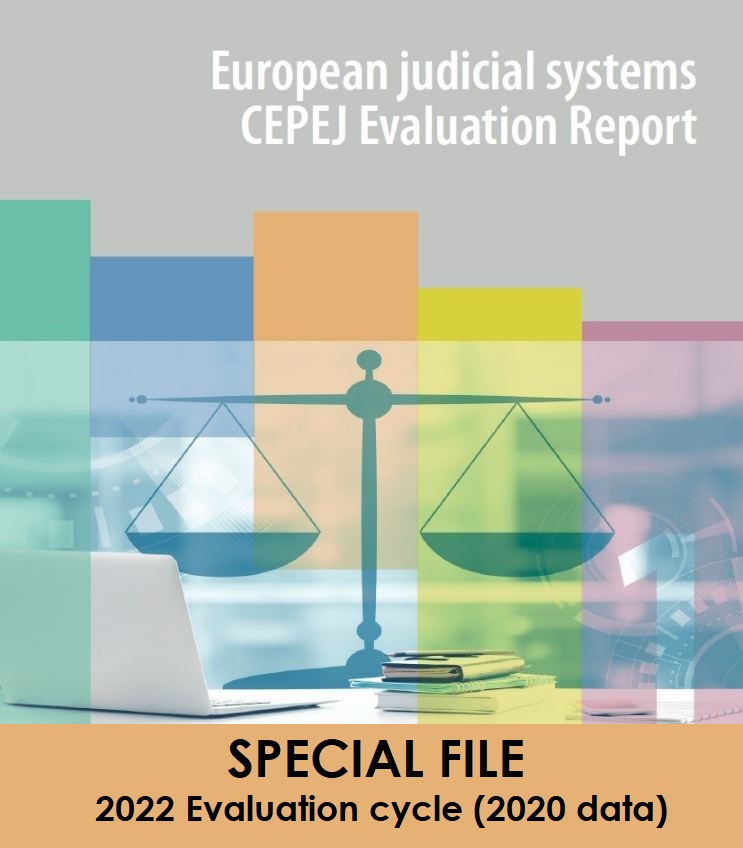Czechia
 CEPEJ Member: Ivana BORZOVÁ
CEPEJ Member: Ivana BORZOVÁ
Head of the Department of Civil Supervision
Ministry of Justice
Vysehradská 16,128 10 PRAGUE 2
Deputy Member:
Andrea VESELÁ
Judge at District Court of Prague
Czechia- European Cyberjustice Network member (ECN)
Přemysl SEZEMSKÝ
Head of Department of Computerization of Justice
Ministry of Justice
National Correspondent
Ivana BORZOVÁ
Head of the Department of Civil Supervision
Ministry of Justice
Vysehradská 16, 128 10 PRAGUE 2
Pilot Courts
District Court of Prague 1
David ŠTAMBERK
Vice-president of the Court
Ovocný trh 14, 100 00 PRAHA 1
Ústí nad Labem Regional Court
Václav BENEŠ
Judge
Národního odboje 1274, 400 92 ÚSTÍ NAD LABEM 50
Evaluation Exercise
- Czech Republic: Evaluation exercise - 2022 Edition
- Czech Republic: Evaluation exercise - 2020 Edition
- Czech Republic: Evaluation exercise - 2018 Edition
- CEPEJ report on peer review on judicial statistics of Czech Republic (February 2017)
- Czech Republic: Evaluation exercise - 2016 Edition
- Czech Republic: Evaluation exercise - 2014 Edition
- Czech Republic: Evaluation exercise - 2012 Edition
- Czech Republic: Evaluation exercise - 2010 Edition
- Czech Republic: Evaluation exercise - 2008 Edition
- Czech Republic: Evaluation exercise - 2006 Edition
- Czech Republic: Pilot scheme
Translations of CEPEJ documents:
- Time management checklist
- European judicial systems - Edition 2006 (2004 data)
- Compendium of "best practices" on time management of judicial proceedings
Links to relevant Institutions
- Ministry of justice
- Constitutional Court
- Supreme Court
- Supreme Administrative Court
- Czech Bar Association
Resources
- Legal texts (Codes, laws, regulations etc.)
Ministerstvo vnitra ceske republiki - Case-law of the higher court/s
Nejvyšší soud
Recent developments in the judicial field
- New Civil Code (10/01/2014)
The New Civil Code is effective since 1st January 2014.
The preparation and drafting of the Code took more than 10 years; the new Code is to replace the Civil Code of 1964 and will repeal more than 100 special acts including the Family Act or the Commercial Code.
It is supposed to react to modern needs and current economic and social situation.
It is composed of five books (general provision, family law, ownership, obligations and transitional provisions) and contains 3081 sections.
The purpose is that all private rights, duties and status of individuals and entities are governed by one code. It stresses our democratic legal traditions and principles of private law in Europe. The new Civil Code was inspired primarily by foreign legislation in continental countries, mainly Germany, Switzerland, Austria, Italy and the Netherlands, but certain inspiration came also from Québec.
- Report on the implementation of the CEPEJ guidelines for judicial time management in 7 pilot courts / institutions (Czech Republic, Georgia, Italy, Norway, Switzerland, United Kingdom) (March 2011)
- Special distinction awarded at the Crystal Scales of Justice in Brussels in June 2009 on the occasion of the Justice Forum for the project "Mentor Scheme" by the Association for probation and mediation in Justice
- Approval of the new Criminal Code which will come into effect on 1st January 2010.
The most significant achievement in Czech criminal legislation is the approval of the new Criminal Code. It essentially changes and modernizes Czech criminal law. The Criminal Code, which will come into effect on 1st January 2010, newly introduces, for example, a house arrest to the system of criminal sanctions. The most important task in the non-criminal area at present is the recodification of private law. Currently the proposal of a new Civil Code and the Act on Mediation in Non-criminal Matters are in the legislative process.
The aggregate amendment of the Civil Procedure Code will come into effect on 1st July 2009. It introduces new arrangements for service of process, audio recordings of trials, a limitation of the extent of reasoning in judgements, reinforcement of the role of notaries in succession proceedings and other changes. As a matter of fact, it generally means improvement and transparency of civil proceedings and elimination of shortages arising in practice.
Organisational chart of the system of justice
Collaborative workspaces:






